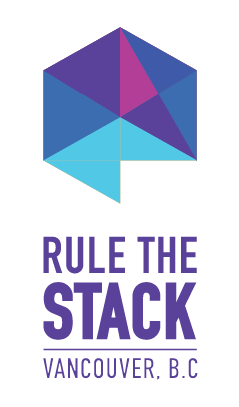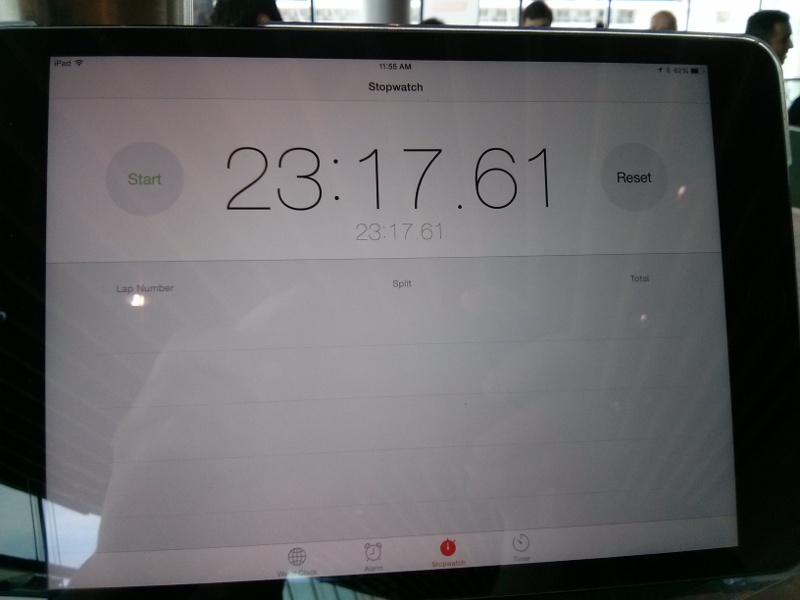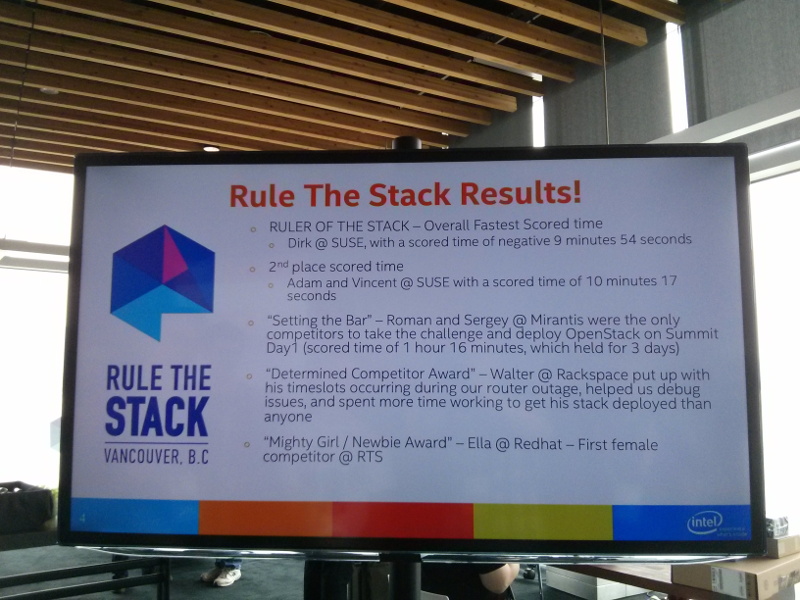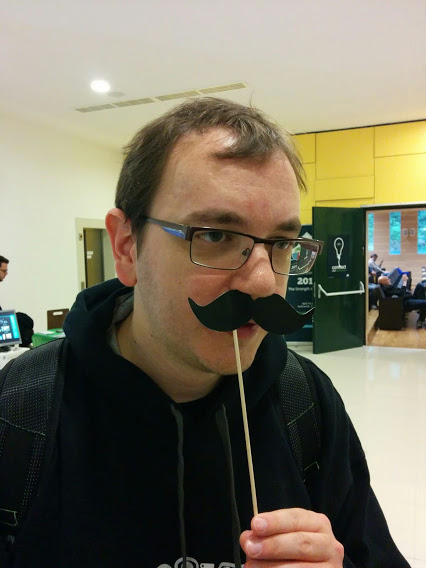
Last week during the the OpenStack Summit in Vancouver, Intel organized a Rule the Stack contest. That's the third one, after Atlanta a year ago and Paris six months ago. In case you missed earlier episodes, SUSE won the two previous contests with Dirk being pretty fast in Atlanta and Adam completing the HA challenge so we could keep the crown. So of course, we had to try again!
For this contest, the rules came with a list of penalties and bonuses which made it easier for people to participate. And indeed, there were quite a number of participants with the schedule for booking slots being nearly full. While deploying Kilo was a goal, you could go with older releases getting a 10 minutes penalty per release (so +10 minutes for Juno, +20 minutes for Icehouse, and so on). In a similar way, the organizers wanted to see some upgrade and encouraged that with a bonus that could significantly impact the results (-40 minutes) — nobody tried that, though.
And guess what? SUSE kept the crown again. But we also went ahead with a new challenge: outperforming everyone else not just once, but twice, with two totally different methods.
For the super-fast approach, Dirk built again an appliance that has everything pre-installed and that configures the software on boot. This is actually not too difficult thanks to the amazing Kiwi tool and all the knowledge we have accumulated through the years at SUSE about building appliances, and also the small scripts we use for the CI of our OpenStack packages. Still, it required some work to adapt the setup to the contest and also to make sure that our Kilo packages (that were brand new and without much testing) were fully working. The clock result was 9 minutes and 6 seconds, resulting in a negative time of minus 10 minutes and 54 seconds (yes, the text in the picture is wrong) after the bonuses. Pretty impressive.
But we also wanted to show that our product would fare well, so Adam and I started looking at this. We knew it couldn't be faster than the way Dirk picked, and from the start, we targetted the second position. For this approach, there was not much to do since this was similar to what he did in Paris, and there was work to update our SUSE OpenStack Cloud Admin appliance recently. Our first attempt failed miserably due to a nasty bug (which was actually caused by some unicode character in the ID of the USB stick we were using to install the OS... we fixed that bug later in the night). The second attempt went smoother and was actually much faster than we had anticipated: SUSE OpenStack Cloud deployed everything in 23 minutes and 17 seconds, which resulted in a final time of 10 minutes and 17 seconds after bonuses/penalties. And this was with a 10 minutes penalty due to the use of Juno (as well as a couple of minutes lost debugging some setup issue that was just mispreparation on our side). A key contributor to this result is our use of Crowbar, which we've kept improving over time, and that really makes it easy and fast to deploy OpenStack.

Wall-clock time for SUSE OpenStack Cloud
These two results wouldn't have been possible without the help of Tom and Ralf, but also without the whole SUSE OpenStack Cloud team that works on a daily basis on our product to improve it and to adapt it to the needs of our customers. We really have an awesome team (and btw, we're hiring)!
For reference, three other contestants succeeded in deploying OpenStack, with the fastest of them ending at 58 minutes after bonuses/penalties. And as I mentioned earlier, there were even more contestants (including some who are not vendors of an OpenStack distribution), which is really good to see. I hope we'll see even more in Tokyo!

Results of the Rule the Stack contest
Also thanks to Intel for organizing this; I'm sure every contestant had fun and there was quite a good mood in the area reserved for the contest.
Update: See also the summary of the contest from the organizers.




















Last Comments